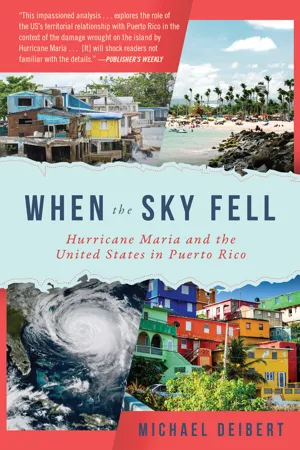By the early 1990s, Puerto Rico found itself once again buffeted by winds affecting the giant power that ruled it and over which it had little control. A new governor, Harvard-educated doctor and PNP member Pedro Rosselló, had assumed office in January 1993, but was unable or unwilling to significantly ameliorate the situation.
By the middle of the decade, Puerto Rico’s public debt had ballooned to $15 billion. As it was seeking new revenue with which to reduce the federal deficit, President Bill Clinton’s administration, with both Democratic and Republican support, decided that the time would be opportune to abolish Section 936 of the Internal Revenue Code, which gave companies from the mainland US an exemption from federal taxes on income earned on the island, whether in the form of operations or interest on local bank deposits. The prospect of losing tax-exempt status raised alarm with the pharmaceutical, electrical equipment, and food processing factories on the island, but appeared to register little in Washington. Even in March 1993, when an estimated one hundred thousand people marched on the island to support retaining the code, its days already appeared to be numbered. In the Christian Science Monitor, Representative Dan Burton, a Republican from Indiana, and Peter Deutsch, a Democrat from Florida, opined that “the US can truly help the Puerto Rican people and their leaders create new jobs and an overall better quality of life while at the same time saving the Treasury more than $5 billion by phasing out Section 936.”
Many in Puerto Rico, including Governor Rosselló, saw things rather differently, with the president of the Puerto Rico Manufacturers’ Association telling the New York Times:
We Puerto Ricans will have to participate in the President’s call to sacrifice, but we are asking that our sacrifice be proportional to our economic situation and that additional unemployment not be created on an island where 18 percent of the people already are without jobs and the per-capita income is only one-third that of the mainland.
Rosselló also predicted that the move would cause a “gigantic decline” in the island’s economy, warning, “if we’re already cutting programs because of a budget deficit, and we would have half a billion less, it would mean chaos.” Rosselló’s PNP, though, generally supported the measure, seeing it as a piece of its desired move toward statehood. Moody’s Investors Service also sounded the alarm, warning that getting rid of the section “could have long-term negative effects on the island’s economy . . . slowing—possibly even halting—job generation.”
In August 1996, as President Clinton signed a bill raising the minimum wage, an end to Section 936 was tucked within the legislation as well. The island would be sacrificed to pay for the minimum wage hike on the mainland. A few days later, the lingerie factory operated by Crescent Industries, which sold its wares to Maidenform, announced that it was closing its factory in the western town of Aguada and moving to the Dominican Republic, leaving 987 people jobless. It was a warning of what was to come. With the Small Business Job Protection Act of 1996, the corporate tax breaks for all factories operating under Section 936 on the island would disappear within a decade and no new federal incentives for investment would be forthcoming. Even Clinton appeared to be aware of the potential impact of the legislation he had just signed, warning that it “ignores the real needs of our citizens in Puerto Rico” and urging Congress to “reform” it.
As clouds darkened its economic horizon, the security situation on the island also deteriorated. In 1999, drug lord José Figueroa Agosto would casually stroll out of prison after likely having bribed his jailers, and would spend the next fifteen years running a binational drug smuggling empire in Puerto Rico and the Dominican Republic. Beginning in 1998, drug trafficking based in La Perla solidified under the leadership of Jorge Gómez González, who would later become the leader of the community development organization Asociación Pro Rescate y Desarrollo de La Perla. In contrast to the sometimes chaotic atmosphere that existed in previous years, Gómez González set up a system dictating where and how drugs could be sold, banning dealers not born and raised in La Perla from traversing the neighborhood without explicit permission (an actual yellow line painted on the ground demarcated a final barrier). The group’s main activity was distributing cocaine and heroin that was then fanned out to the caserios elsewhere on the island. In most of the caserios, the drug trade was controlled either by the Organizacion de Narcotraficantes Unidos (ONU gang, also known popularly as La ONU) or their rivals, the Rompe ONU (ONU Breakers).
On December 13, 1998, the island held a referendum on its political status, with voters given the options to maintain Puerto Rico’s commonwealth status with the United States, have a “free association” that would continue a legal connection with the United States but grant further autonomy, follow a process to ascend to statehood, opt for independence, or “none of the above.” With a turnout of 71.3 percent, “none of the above” came out in the lead with 50.5 percent of the vote. After an intense pro-statehood campaign, the vote came as a stinging defeat to Governor Rosselló. The following year, the isl...
